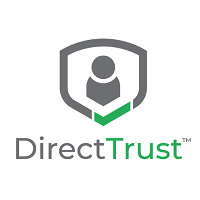 Goal is to create Implementation Guide to Leverage the Direct Standard™
Goal is to create Implementation Guide to Leverage the Direct Standard™
DirectTrust (@DirectTrustorg) announced the formation of a Consensus Body with the mission of creating an Implementation Guide to leverage the Direct Standard™ to send and receive Admission, Discharge, Transfer (ADT) notifications. DirectTrust is a non-profit healthcare industry alliance created to support secure, identity-verified electronic exchanges of protected health information (PHI) between provider organizations, and between providers and patients, for the purpose of improved coordination of care.
“In response to the new CMS rule on ADT notifications, the vast majority of leading EHR vendors asked DirectTrust to launch an effort for the community to standardize how these notifications could be sent and received using the Direct Standard, specifically in regard to payload and context,” stated Scott Stuewe, DirectTrust President and CEO. “Our goal in creating the Consensus Body is to meet market demand to leverage existing standards, and agree on how they should be used for this type of exchange. We’re excited to work with the community to develop an Implementation Guide for ADT notifications via Direct that enables recipients to use notifications to improve care coordination across the healthcare continuum.”
The creation of the Consensus Body is an outcome of DirectTrust’s EHR Roundtable, which is focused on ensuring that Direct Secure Messaging is widely deployed, and implemented to its full capacity to optimize utilization and provide the best possible patient care. The EHR Roundtable is a collaborative effort of 14 vendors that comprise more than 90% of the EHR market.
The goal of the Implementation Guide is to identify which existing standards will be used to send notifications that enable receivers to understand and prepare to handle inbound ADT notifications. ADT notifications are a requirement of the CMS patient access and interoperability final rule and a Conditions of Participation (CoPs) for inpatient hospitals, including psychiatric and critical access hospitals.
“Having a platform like Direct to be the floor that we deliver to everybody would be ideal,” said Christopher Kundra, MEDITECH Manager of Interoperability API & Structured Development. “If we can nail down a standard for how we attach a payload to the Direct message, that would put us in a good spot.”
“Our challenge is addressing the lack of standardization of content, the payload, and the format across different hospital vendors, as well as ensuring that on the receiving side the notification gets delivered to the provider for which it was intended, or it fails to meet the goal,” said Tushar Malhotra, Director of Interoperability Strategy and Business Development at eClinicalWorks. “Thanks to Meaningful Use, the adoption of Direct Secure Messaging is widespread. It’s substantial enough across the client base, already in their workflow, and already set up, and certainly can be a pathway for Notifications.”
DirectTrust will hold an information session about the new Consensus Body on Thursday August 20, 2020 from 1:00-2:00pm EDT. The session is open to all stakeholders interested in learning more about how to participate in the Consensus Body for ADT notifications. To register, click here.
The first meeting of the Consensus Body for ADT notifications will be held on Wednesday September 2, 2020 from 1:00-2:00pm EDT. For more information and to apply for participation, contact Standards@DirectTrust.org.
About DirectTrust
DirectTrust™ is a non-profit, vendor-neutral alliance initially created by and for participants in the Direct community, including Health Information Service Providers (HISPs), Certificate Authorities (CAs), Registration Authorities (RAs), healthcare providers, consumers/patients, and Health IT vendors. DirectTrust serves as a governance forum, trust community, standards organization, and accreditation body for persons and entities engaged in exchange utilizing the Direct Standard™, supported by DirectTrust’s robust security and trust framework. The goal of DirectTrust is to develop, promote, and, as necessary, help enforce the rules and best practices necessary to maintain security and trust within the Direct Secure Messaging community. DirectTrust is committed to fostering widespread public confidence in the interoperable exchange of health information.
